Natalia KAdverbs of Time Для выражения

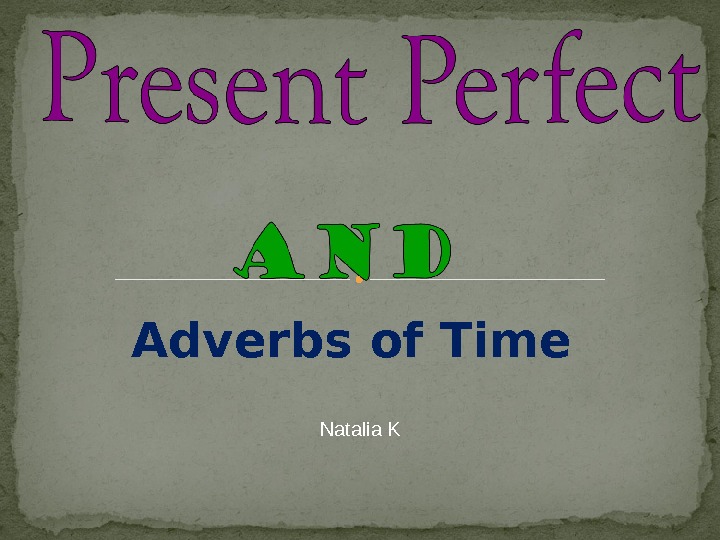
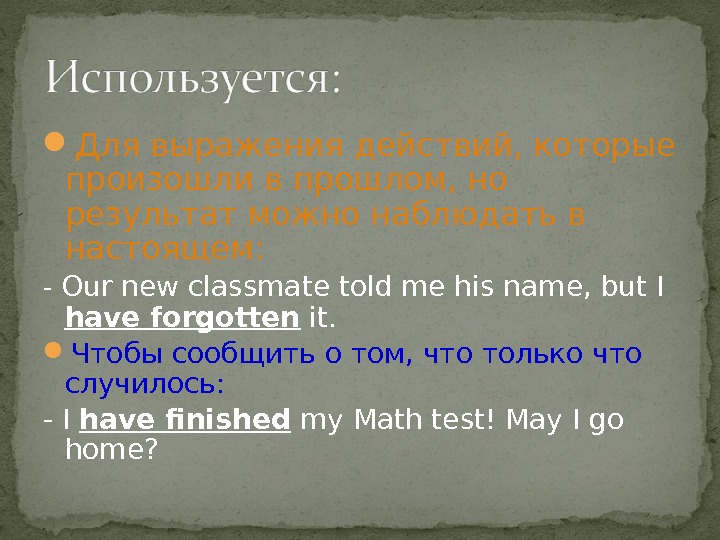
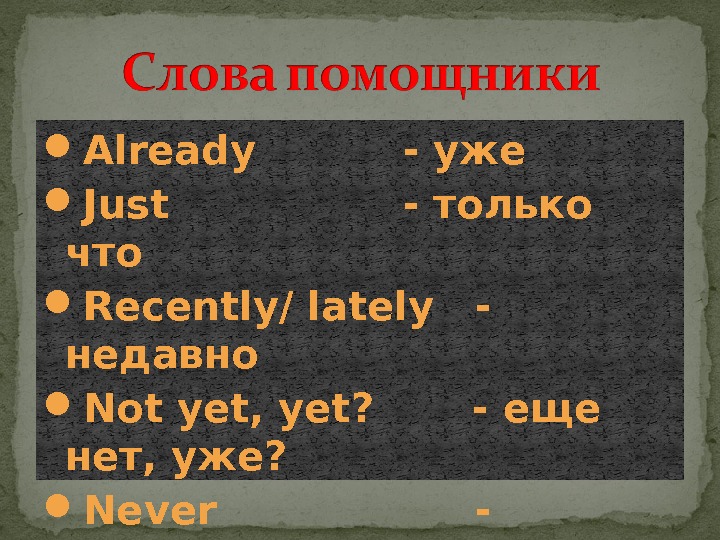
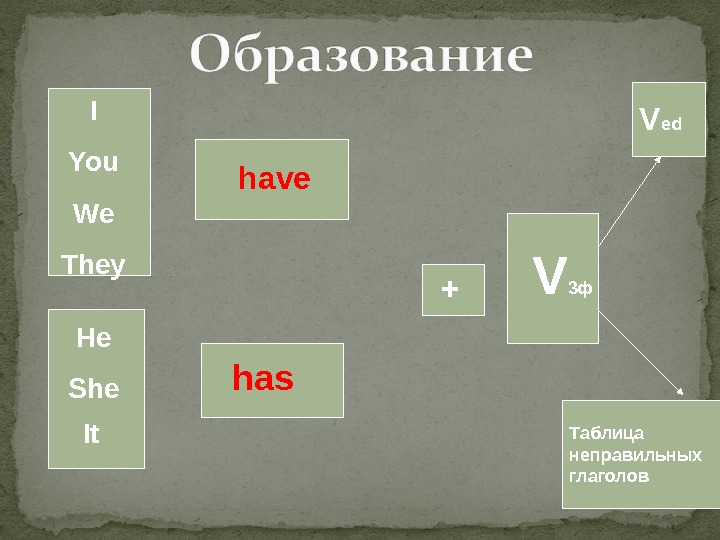
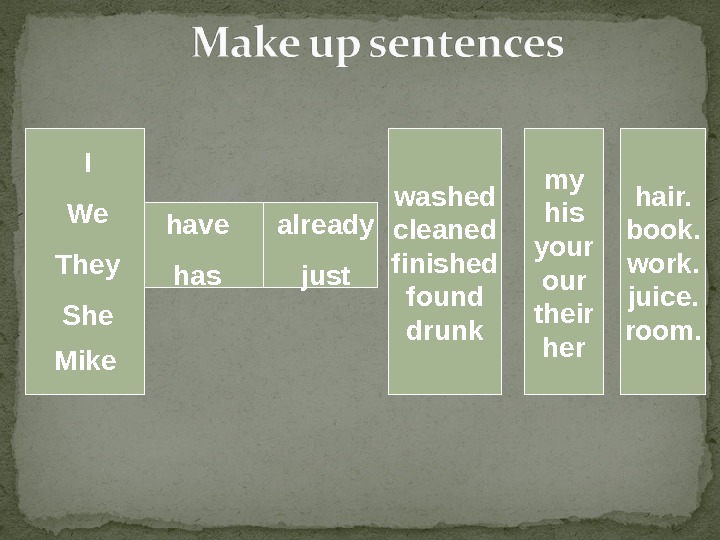
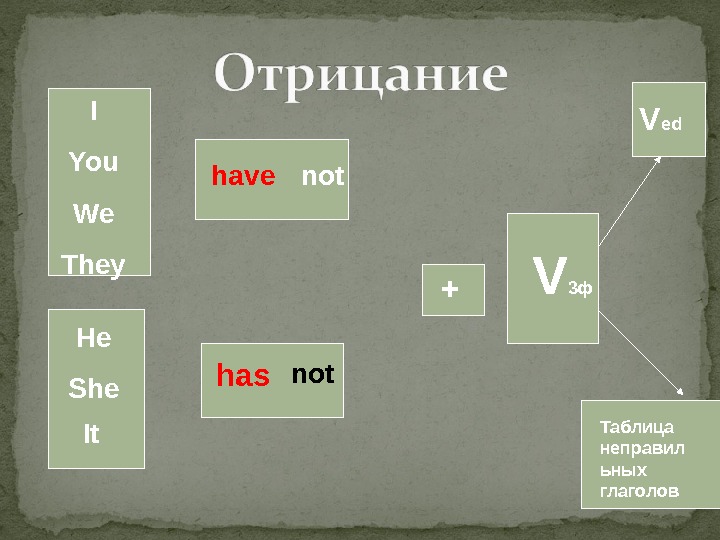
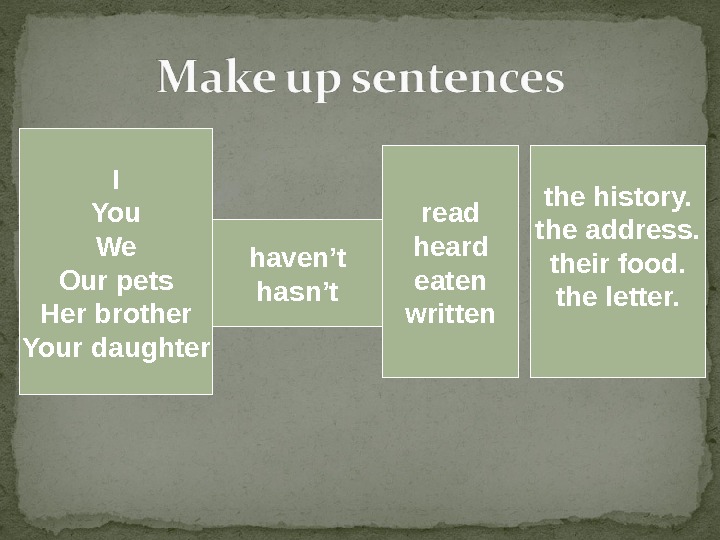
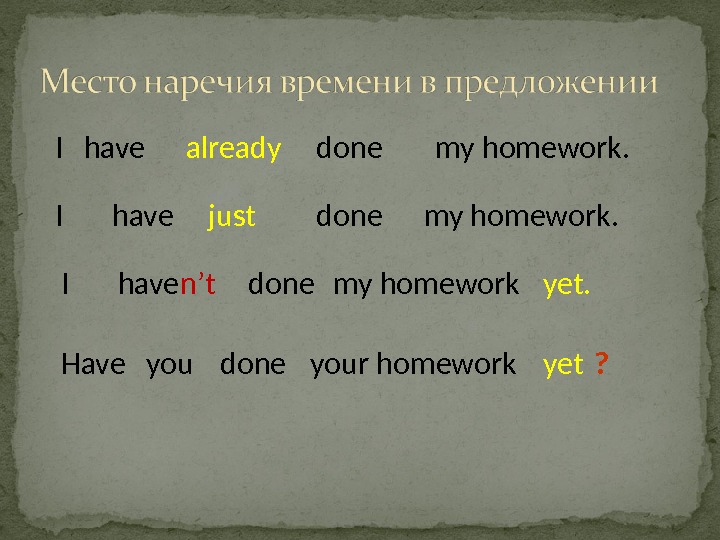
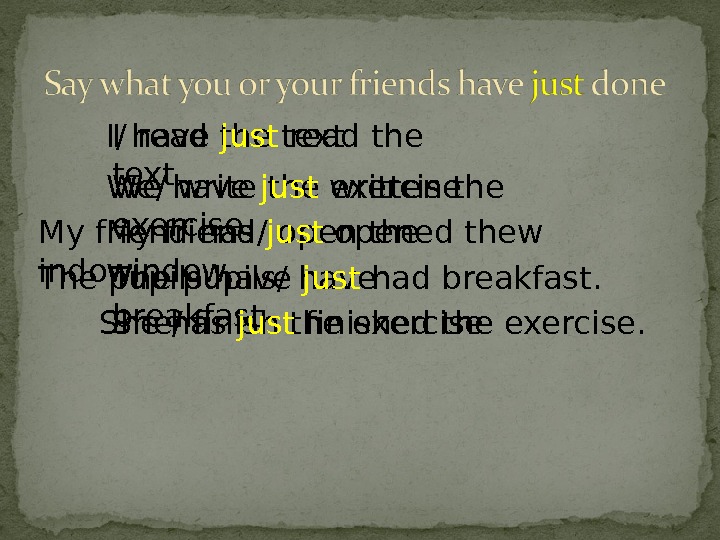
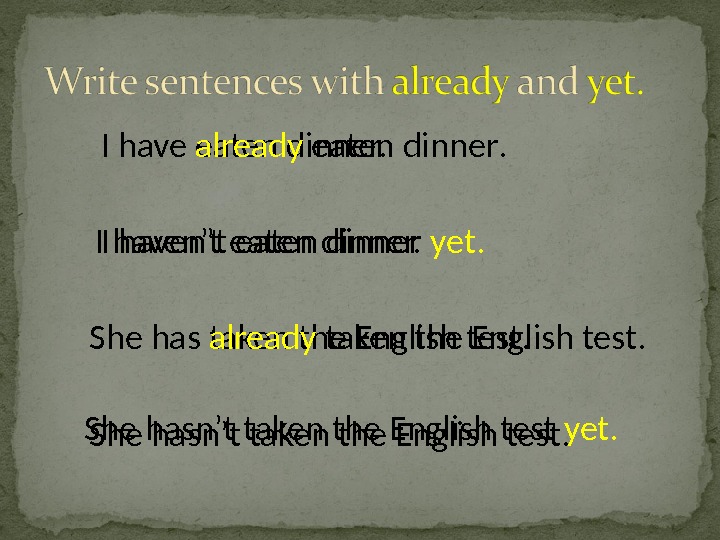
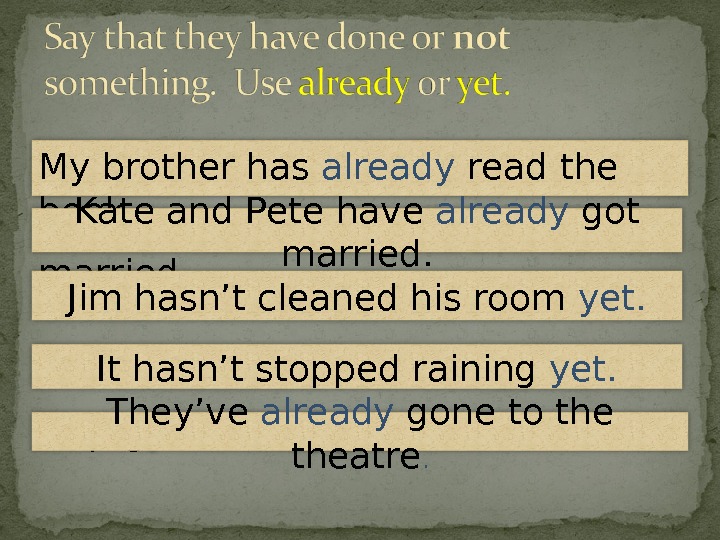
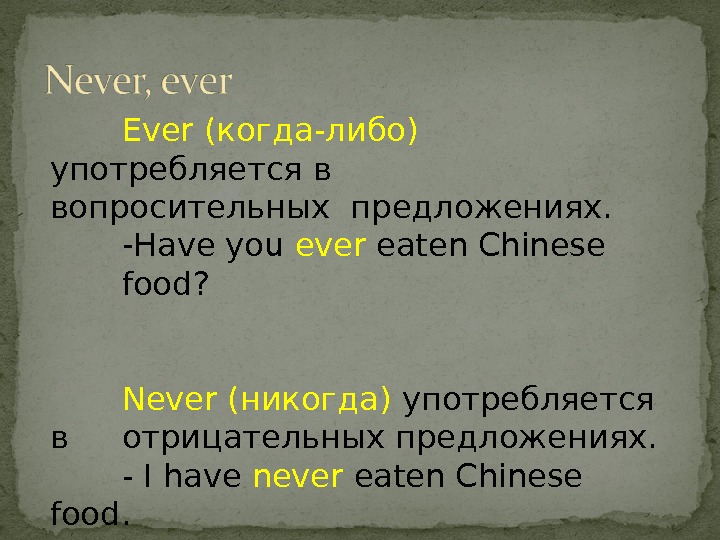
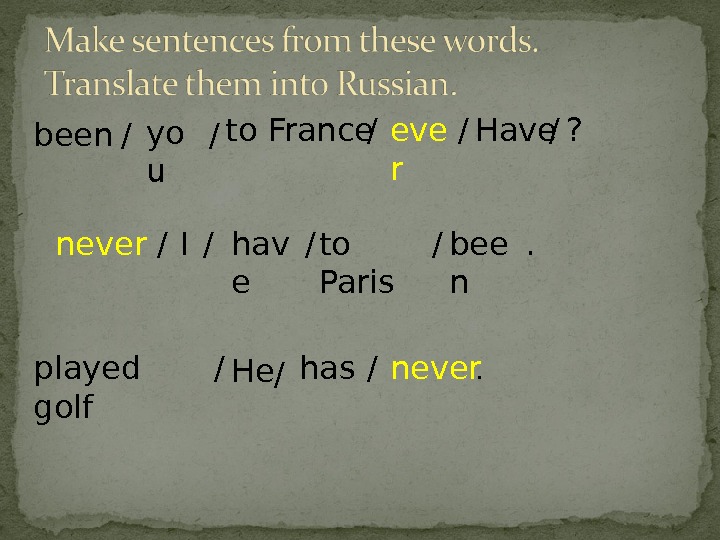
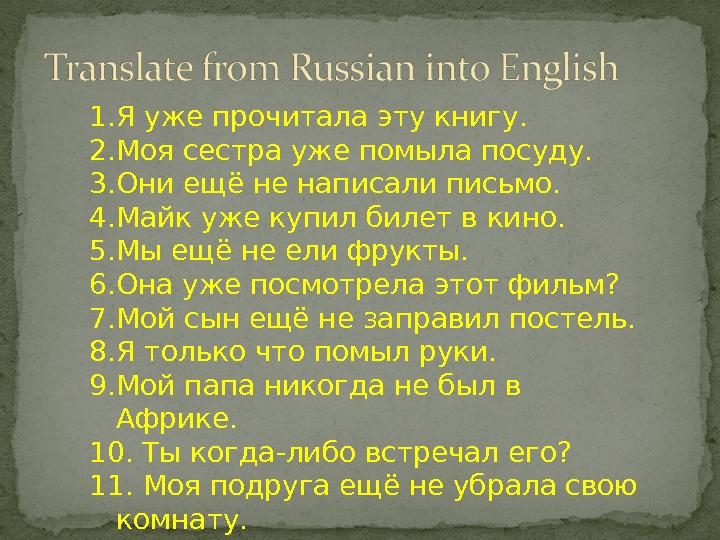
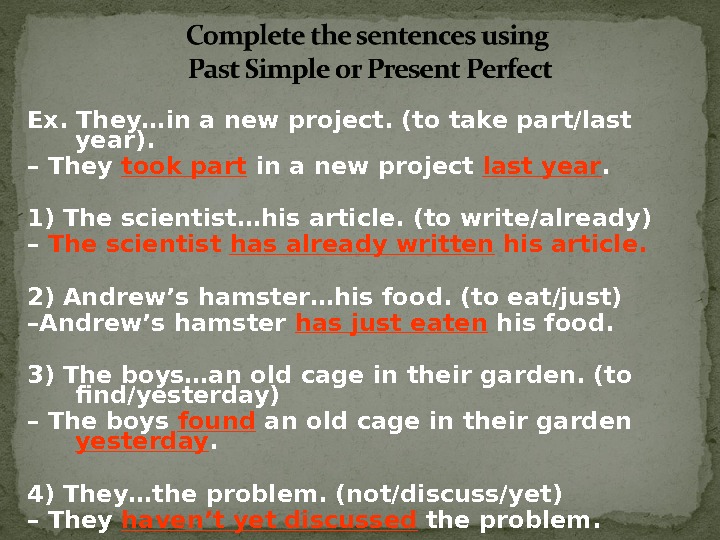

- Размер: 2.3 Mегабайта
- Количество слайдов: 16
Описание презентации Natalia KAdverbs of Time Для выражения по слайдам
 Natalia KAdverbs of Time
Natalia KAdverbs of Time
 Для выражения действий, которые произошли в прошлом, но результат можно наблюдать в настоящем : — Our new classmate told me his name, but I have forgotten it. Чтобы сообщить о том, что только что случилось : — I have finished my Math test! May I go home?
Для выражения действий, которые произошли в прошлом, но результат можно наблюдать в настоящем : — Our new classmate told me his name, but I have forgotten it. Чтобы сообщить о том, что только что случилось : — I have finished my Math test! May I go home?
 Already — уже Just — только что Recently/ lately — недавно Not yet, yet ? — еще нет, уже? Never — никогда Ever — когда — либо
Already — уже Just — только что Recently/ lately — недавно Not yet, yet ? — еще нет, уже? Never — никогда Ever — когда — либо
 I You We They He She It have has + V 3 ф V ed Таблица неправильных глаголов
I You We They He She It have has + V 3 ф V ed Таблица неправильных глаголов
 I We They She Mike already just washed cleaned finished found drunk my his your their herhave has hair. book. work. juice. room.
I We They She Mike already just washed cleaned finished found drunk my his your their herhave has hair. book. work. juice. room.
 I You We They He She It have has + V 3 ф V ed Таблица неправил ьных глаголовnot
I You We They He She It have has + V 3 ф V ed Таблица неправил ьных глаголовnot
 I You We Our pets Her brother Your daughter haven’t hasn’t read heard eaten written the history. the address. their food. the letter.
I You We Our pets Her brother Your daughter haven’t hasn’t read heard eaten written the history. the address. their food. the letter.
 I have already done my homework. I have just done my homework. I have done my homework yet. Have you done your homework yet ? n’t
I have already done my homework. I have just done my homework. I have done my homework yet. Have you done your homework yet ? n’t
 I/ read the text I have just read the text. We/ write the exercise We have just written the exercise. My friend/ open the window. My friend has just opened thew indow. The pupils/ have breakfast. The pupils have just had breakfast. She/ finish the exercise She has just finished the exercise.
I/ read the text I have just read the text. We/ write the exercise We have just written the exercise. My friend/ open the window. My friend has just opened thew indow. The pupils/ have breakfast. The pupils have just had breakfast. She/ finish the exercise She has just finished the exercise.
 I have eaten dinner. She has taken the English test. I haven’t eaten dinner. She hasn’t taken the English test. I have already eaten dinner. I haven’t eaten dinner yet. She has already taken the English test. She hasn’t taken the English test yet.
I have eaten dinner. She has taken the English test. I haven’t eaten dinner. She hasn’t taken the English test. I have already eaten dinner. I haven’t eaten dinner yet. She has already taken the English test. She hasn’t taken the English test yet.
 My brother/ read the book by L. Tolstoy. My brother has already read the book. Kate and Pete/ get married. Kate and Pete have already got married. Jim / not/ clean his room. Jim hasn’t cleaned his room yet. It/ no/ stop raining It hasn’t stopped raining yet. They/ go to theatre. They’ve already gone to theatre.
My brother/ read the book by L. Tolstoy. My brother has already read the book. Kate and Pete/ get married. Kate and Pete have already got married. Jim / not/ clean his room. Jim hasn’t cleaned his room yet. It/ no/ stop raining It hasn’t stopped raining yet. They/ go to theatre. They’ve already gone to theatre.
 Ever (когда-либо) употребляется в вопросительных предложениях. — Have you ever eaten Chinese food? Never ( никогда ) употребляется в отрицательных предложениях. — I have never eaten Chinese food.
Ever (когда-либо) употребляется в вопросительных предложениях. — Have you ever eaten Chinese food? Never ( никогда ) употребляется в отрицательных предложениях. — I have never eaten Chinese food.
 Have yo u eve rbeen to France ? / // / I hav enever bee nto Paris// / / He has neverplayed golf. .
Have yo u eve rbeen to France ? / // / I hav enever bee nto Paris// / / He has neverplayed golf. .
 1. Я уже прочитала эту книгу. 2. Моя сестра уже помыла посуду. 3. Они ещё не написали письмо. 4. Майк уже купил билет в кино. 5. Мы ещё не ели фрукты. 6. Она уже посмотрела этот фильм? 7. Мой сын ещё не заправил постель. 8. Я только что помыл руки. 9. Мой папа никогда не был в Африке. 10. Ты когда-либо встречал его? 11. Моя подруга ещё не убрала свою комнату. 12. Ты когда-либо летал на самолёте?
1. Я уже прочитала эту книгу. 2. Моя сестра уже помыла посуду. 3. Они ещё не написали письмо. 4. Майк уже купил билет в кино. 5. Мы ещё не ели фрукты. 6. Она уже посмотрела этот фильм? 7. Мой сын ещё не заправил постель. 8. Я только что помыл руки. 9. Мой папа никогда не был в Африке. 10. Ты когда-либо встречал его? 11. Моя подруга ещё не убрала свою комнату. 12. Ты когда-либо летал на самолёте?
 Ex. They…in a new project. (to take part/last year). – They took part in a new project last year. 1) The scientist…his article. (to write/already) – The scientist has already written his article. 2) Andrew’s hamster…his food. (to eat/just) – Andrew’s hamster has just eaten his food. 3) The boys…an old cage in their garden. (to find/yesterday) – The boys found an old cage in their garden yesterday. 4) They…the problem. (not/discuss/yet) – They haven’t yet discussed the problem.
Ex. They…in a new project. (to take part/last year). – They took part in a new project last year. 1) The scientist…his article. (to write/already) – The scientist has already written his article. 2) Andrew’s hamster…his food. (to eat/just) – Andrew’s hamster has just eaten his food. 3) The boys…an old cage in their garden. (to find/yesterday) – The boys found an old cage in their garden yesterday. 4) They…the problem. (not/discuss/yet) – They haven’t yet discussed the problem.
 Buy! See you! Homework Ex. , p.
Buy! See you! Homework Ex. , p.

